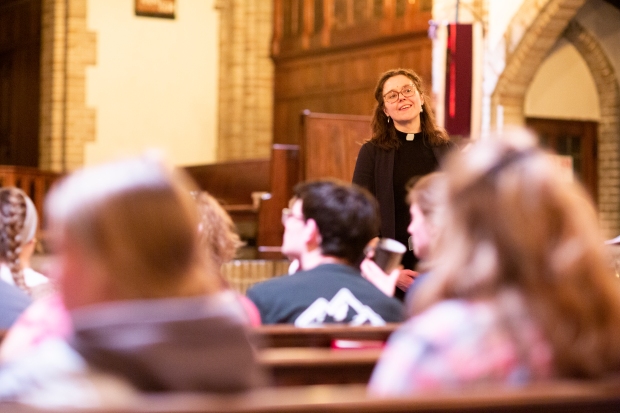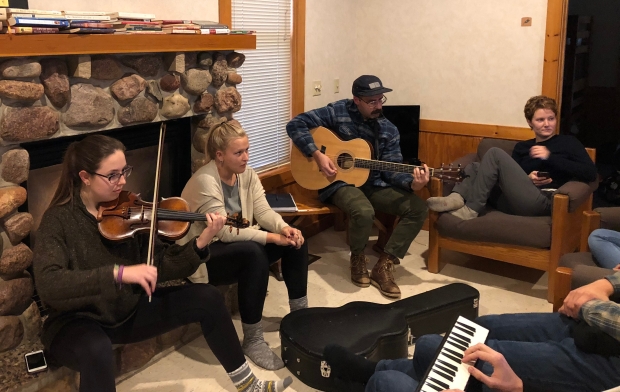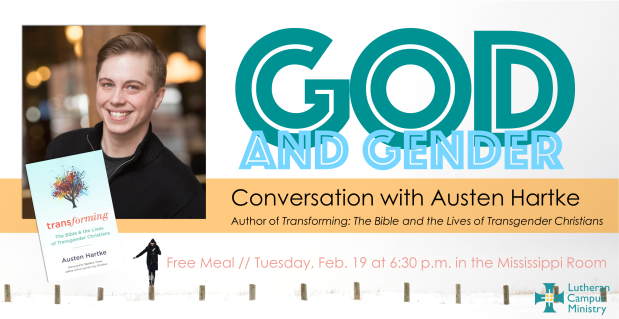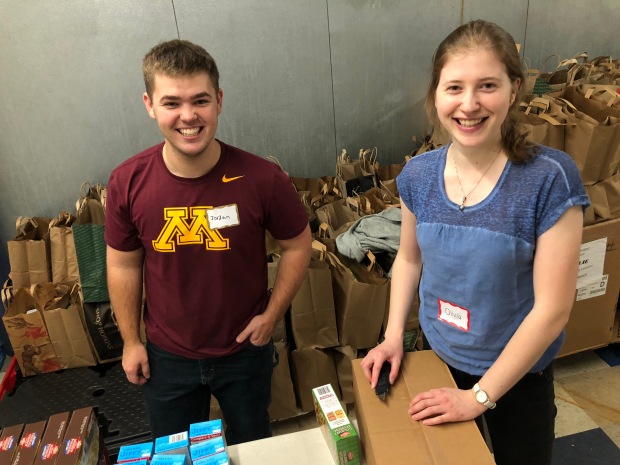Written by Kelly Mork
Every semester coming back to school after a long break, I find myself battling mixed emotions. I’m excited to see people again, I’m worried classes will be hard, I’m nervous I won’t be able to do it all, I’m ready to learn new things, and the list goes on. Yet each beginning, even as I’m running on high breathing, we reach the first night of Pause. And everything is okay.
Do you ever get that overwhelming sense of comfort? Of realizing “this is what I needed” even if you didn’t know beforehand? Pause, our weekly worship gathering on Wednesday nights, is just that. A literal pause. A chance to stop in the middle of the week and take a step back from life, campus chaos, work, classes, and all the other stressors to allow yourself to BE.
(Video above taken during the sending song at pause on Wednesday, Oct. 31, 2018)
There’s something about walking in to a dark, cozy sanctuary filled with candles, music, and people your own age that is so welcoming and comfortable (especially when you’re greeted with hot cocoa in negative temps). As we said our gathering litany, sang songs of joy and light, and settled into this community, you could sense the tension easing, the chatter of reconnecting slowing, and the smiles of contentment growing. It’s a new beginning.
Our first week back started in the season of Epiphany, that one after Christmas where the wise ones travel to meet baby Jesus. But what about the star that led them there? As the wise ones followed a star to find Him, we too set our own intentions in “stars” for the coming year. As we gathered at the cross, we lit candles and chose a word for our stars. Some included: rest, patience, joy, time, and other concepts to guide us through the semester and year as a reminder of something larger than ourselves and this campus.
As we begin this new semester, it’s easy to fall into routine and become overwhelmed. But finding your light and remembering to pause, whether in worship or on your own, is a chance to disconnect from the commotion and dig deeper into creation, community, and yourself.
Pause Gathering Litany:
There are a variety of gifts,
but there is one Spirit.
There are a variety of services,
but the same Lord.
There are a variety of activities,
but the same God.
Engineers and English majors,
questioning and certain,
poor and rich;
God arranged the members of the body;
God chose each one of us.
God loves each one of us.
Conservative and liberal,
city kid and country kid,
introvert and extrovert;
All are a part of the Body.
Just as it is one and has many members,
so it is with Christ.
In one Spirit we were all baptized into one body,
and we were all made to drink of one Spirit.
We gather now;
to worship in word and song
to question and pray
to belong and to become
to join in God’s work of reconciliation and renewal of all creation
Amen.










